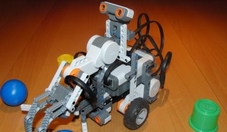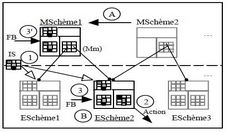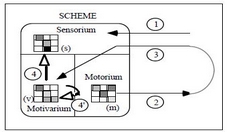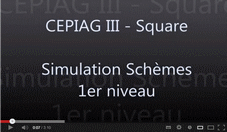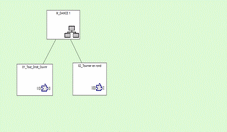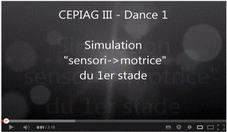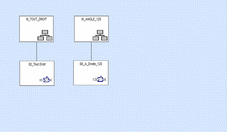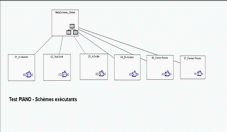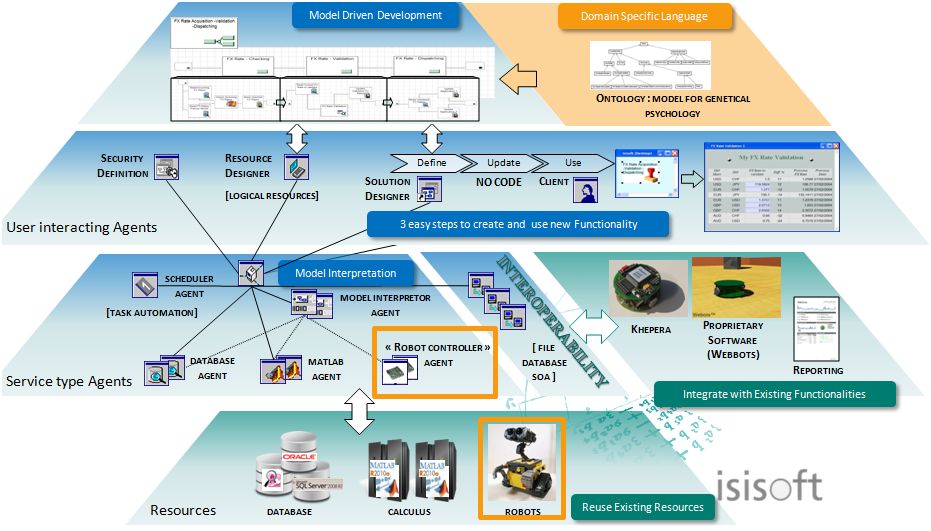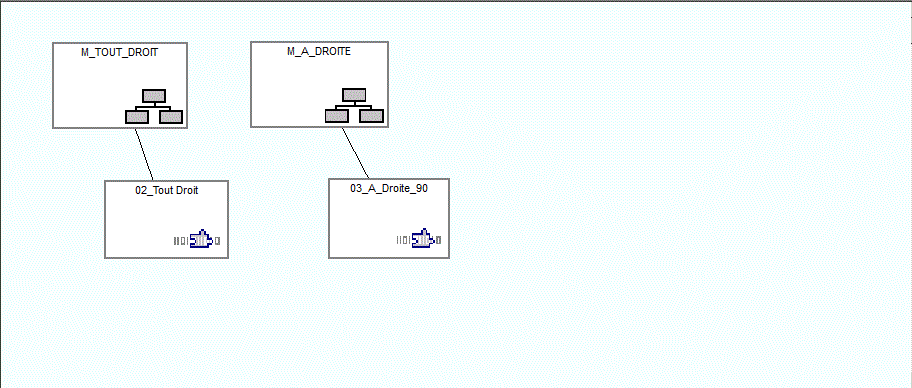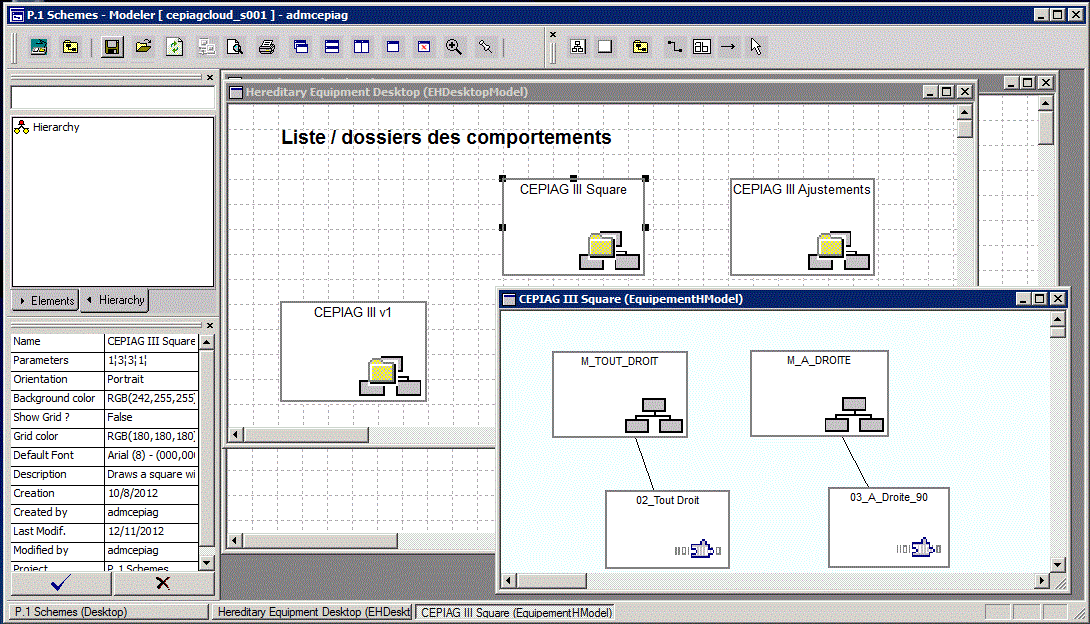
Projet
Projet
Le but du projet est de fournir à des communautés
aussi différentes que des ingénieurs, des
informaticiens ou des psychologues un ensemble d’outils
informatiques leur permettant de « jouer »
avec des concepts d’éthologie animale et de
psychologie génétique (d’inspiration
piagétienne) - rien
ne vaut un objet « to think with and to think through
» une théorie ou un espace de problème,
pour
reprendre les termes de Seymour Papert.
[Description détaillée]
Simulation
L'outil de modélisation d'Isisoft permet de
définir graphiquement les comportements en utilisant comme
briques de base les agendateurs (ou "méta-schèmes") et les
schèmes.
[Rechercher des comportements]
Nouveautés - Chat FJP
Comportements
Comportement type des premiers stades
Pour l'instant, les «comportement type» définis se situent
aux niveaux de l'exercice des instincts et des
réflexes (premier stade sensori-moteur de Piaget). A chaque
avancée dans notre modélisation, nous allons
compléter le tableau ci-dessous avec les nouveaux
comportements disponibles.
Pour accéder directement au détail d'un
comportement type, il suffit de cliquer sur l'image, dans la
boîte correpondant au comportement.
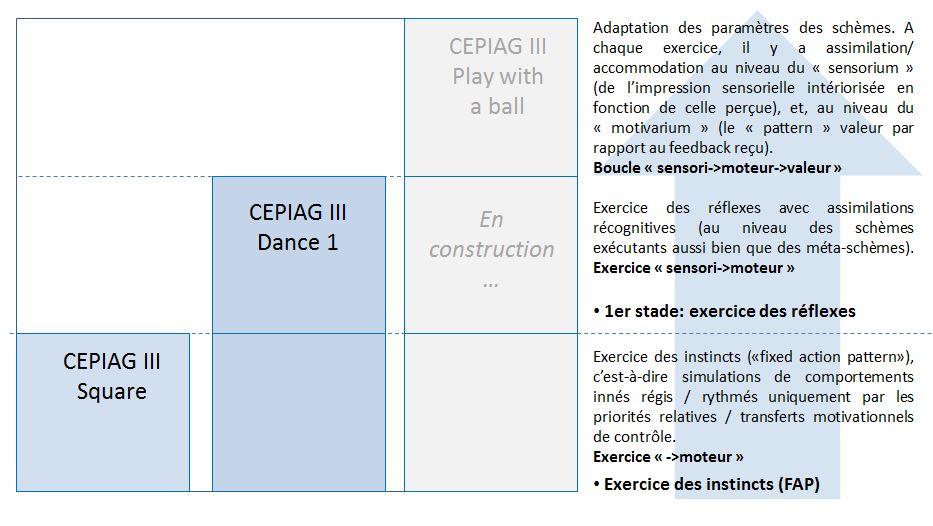
Bibliographie
1936. La naissance de l'intelligence chez l'enfant. Jean Piaget. Neuchâtel et Paris: Delachaux et Niestlé, 1936.
[Chapitres en version PDF]
1937. La construction du réel chez l'enfant. Jean Piaget. Neuchâtel et Paris: Delachaux et Niestlé, 1937.
[Chapitres en version PDF]
1945. La formation du symbole chez l'enfant. Jean Piaget. Neuchâtel et Paris: Delachaux et Niestlé, 1945.
[Chapitres en version PDF]
1997. Article “La rappresentazione dal punto di vista di una
psicologia costruttivista delle condotte”
(Jean-Jacques Ducret, Olivier Real del Sarte, Wolfgang Schachner,
CEPIAG Genève), dans “Livelli di
rappresentazione”, a cura di Federico Braga Illa, collana di
studi e ricerche dell’imes diretta da
Massimo Negrotti, Edizioni Quattro Venti, Urbino (Italia), 1997.
1999. Article “Valore, indice e rappresentazione nella guid
dei comportamenti elementari” (Wolfgang
Schachner CEPIAG Genève, Olivier Real del Sarte CERFASY
Neuchâtel et CEPIAG Genève, Carlos León,
Université de Genève (FAPSE) et CEPIAG
Genève), dans magazine “METIS 1999”, p.
7-22, apprile
1999.
2000. “Processi di rappresentazione e teorie della
mente”, a cura di Federico Braga Illa - Guiseppe
Padovani, QuattroVenti, Urbino 2000.
Publication de l’article suivant:
“Dall'azione al pensiero” par Olivier Real del
Sarte (Faculté de Psychologie et des Sciences de
l'Education de l'Université de Genève et CEPIAG
Genève), Wolfgang Schachner (CEPIAG Genève), et
avec la collaboration de Guy Cellérier et Jean-Jacques
Ducret, p. 249 - 261.
[Texte PDF en français]
2010. Article “Applying Software Engineering to Agent
Development” (Mark A. Cohen, Frank E. Ritter
and Steven R. Haynes), dans magazine “AImagazine. Volume 31,
number 2 – Summer 2010”, p. 25-44.
2013. Présentation
“CEPIAG_III: an environment to simulate psychogenetical constructions”
par Wolfgang Schachner dans le cadre du “SGAICO Annual Assembly and Workshop”. EPFL, Lausanne, 27 novembre 2013.
[Présentation PDF]
2015. Présentation du poster "CEPIAG:Emergence of spontaneous proto-cooperation" par Wolfgang
Schachner dans le cadre du "SGAICO
Annual Assembly: Hot Topics in Cognitive Science & Artificial
Intelligence". EPFL Biotech Campus Geneva. 12 novembre
2015.
[Poster PDF]
Liens
CEPIAG
Le CEPIAG est un centre privé de recherche qui prolonge les travaux de corrélation entre cybernétique et épistémologie génétique entrepris par Jean Piaget, Seymour Papert et Guy Cellérier au sein du Centre international d'épistémologie génétique.
Fondation Jean Piaget
La Fondation Jean Piaget pour recherches psychologiques et épistémologiques a été créée en 1976 par Jean Piaget afin de favoriser l’essor de ces disciplines. Elle a, à cet effet, soutenu pendant plusieurs années un certain nombre d’activités scientifiques (bourses d'étude des Archives Jean Piaget, travaux avancés de recherche, organisation de colloques, etc.), ainsi que la publication des dernières recherches dirigées ou initiées par Piaget au Centre International d’épistémologie génétique.
Ressources informatiques
Isisoft
Isisoft’s platform is a distributed N-tier application that runs on Microsoft Windows environments (up to Windows 8.1 and Windows Server 2012 R2). Tiers such as component servers, database servers, as well as user interacting tiers such as Modelers, Clients, etc. can either run on different machines or on the same one. All tiers are autonomous and locally independent (distributed agents platform). This very specific feature gives tangible answers to scalability and redundancy (up-time) issues
La page d'accueil a été réalisée à l'aide des outils suivants:
CLOUD-CAROUSEL V1.0.5: Professor CLOUD - Cloud Carousel, a 3d Carousel in Javascript.
There are some benefits to doing this kind of thing in JavaScript rather than Flash, not least of which is the ease of integration,
small file size, SEO, and inherent degradability/accessibility. Not having another dev-tool in the workflow is another plus.
The carousel features realistic perspective. Many 3d carousels only apply perspective scaling to the size of the images, not their positions.
This results in disproportionate gaps appearing between items as they shrink in the distance which looks odd
(c) 2011 by R Cecco
SLIMBOX V2.04: The ultimate lightweight Lightbox clone
... now using the jQuery javascript library.
Slimbox is a 4 KB visual clone of the popular Lightbox 2 script by Lokesh Dhakar, written using the jQuery javascript library (in version 2) or the MooTools javascript framework (in version 1).
It was designed to be very small, efficient, standards-friendly, fully customizable, more convenient and 100% compatible with the original Lightbox 2.
Although the design and base functionalities are the same as Lightbox, the code was written from scratch and is constantly improved.
(c) Christophe Beyls 2007-2010
THUMBELINA CONTENT SLIDER V1.0 (Rev 1302190900): Thumbelina is a very lightweight content slider specifically designed for use with galleries of thumbnail images.
It integrates well with other plugins, and is a perfect solution where too many thumbnails would clutter the page.
Copyright 2013, Star Plugins, www.starplugins.com
License: GNU General Public License, version 3 (GPL-3.0)
http://www.opensource.org/licenses/gpl-3.0.html
